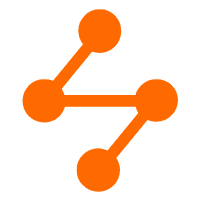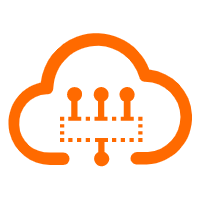By Yi Xian
This tutorial discusses how to develop Function Compute by running Selenium Java, but before we get down into it, let's first take a look at several important concepts mentioned in this article.
First, there's Alibaba Cloud's Function Compute, which is an event-driven service that allows users to write and upload code without having to manage server health or consider some other factors. Function Compute prepares and auto scales to the appropriate amount of computing resources necessary to run user code. The user only pays for the resources required to run their code.
Next, there's Fun, which is a deployment tool for serverless applications. It helps you manage resources, such as Function Compute, API Gateway, and Log Service. You can use Fun to develop, build, and deploy resources by describing specified resources in the template.yml file.
Note: The techniques described in this article are applicable to Fun 2.10.2 or later.
This tutorial discusses how to develop Function Compute by running Selenium Java. The project outlined in this tutorial is developed on macOS but it also involves platform-independent tools, which are compatible with Linux and Windows. Before proceeding to this example, make sure that Docker, Fun, and Fcli are correctly installed, updated to the latest version and properly configured. You can download, update, and configure these tools with the instructions and resources on the pages linked here.
Fun and Fcli depend on Docker to simulate the local environment. MacOS users can use homebrew to install these tools:
brew cask install docker
brew tap vangie/formula
brew install fun
brew install fcliWindows and Linux users can refer to Installation to learn how to install these tools. After the installation, don't forget to first run fun config to initialize the configuration.
Note: If you have already installed Fun, make sure it is version 2.10.1 or higher.
$ fun --version
2.10.1You can use the fun init command to easily initialize this template project to a local environment.
fun init vangie/selenium-java-exampleThen you can use the fun install command to install dependencies.
$ fun install
...Text, you can conduct some local testing. To do so, you can use the ChromeDemo test code, whose segment content is as follows:
public class ChromeDemo implements StreamRequestHandler {
public void handleRequest(InputStream inputStream,
OutputStream outputStream,
Context context) throws IOException {
System.setProperty("webdriver.chrome.driver", "/code/chromedriver");
ChromeOptions options = new ChromeOptions();
options.setBinary("/code/headless-chromium");
options.addArguments("--disable-extensions"); // disabling extensions
options.addArguments("--disable-gpu"); // applicable to windows os only
options.addArguments("--disable-dev-shm-usage"); // overcome limited resource problems
options.addArguments("--no-sandbox"); // Bypass OS security model
options.addArguments("--headless");
WebDriver driver = new ChromeDriver(options);
driver.get("https://ide.fc.aliyun.com");
outputStream.write(("Page title is: " + driver.getTitle() + "\n").getBytes());
driver.quit();
}
}Next, you can trey the code locally by using the following command.
$ mvn package && fun local invoke selenium
...
FC Invoke Start RequestId: 68c83b4c-b053-479c-9b0e-9503582ccb56
handle user request is com.aliyun.fc.selenium.ChromeDemo::handleRequest
cache is null!
Starting ChromeDriver 2.35.528139 (47ead77cb35ad2a9a83248b292151462a66cd881) on port 20652
Only local connections are allowed.
Mar 05, 2019 11:34:27 AM org.openqa.selenium.remote.ProtocolHandshake createSession
INFO: Detected dialect: OSS
Page title is: Cloud-integrated development environment
FC Invoke End RequestId: 68c83b4c-b053-479c-9b0e-9503582ccb56
RequestId: 68c83b4c-b053-479c-9b0e-9503582ccb56 Billed Duration: 5265 ms Memory Size: 1998 MB Max Memory Used: 240 MBThen, deploy it using the fun deploy command.
$ mvn package && fun deployLast, you can run it.
$ fcli function invoke -s chrome -f selenium
Page title is: 云端集成开发环境Because the size of chromedriver and headless-chromium after the compression is very close to 50 MB and little space is left for the jar, a highly compressed version is also created. The file is 32.7 MB after compressed by using the Brotli algorithm which features a higher compression ratio. When running the project, use initializer for the decompression, which takes about 3.7s.
99 posts | 7 followers
FollowAlibaba Clouder - August 10, 2020
Arslan ud Din Shafiq - May 18, 2020
Alibaba Cloud Serverless - August 21, 2019
Alibaba Clouder - April 15, 2021
Alibaba Clouder - November 13, 2020
Alibaba Cloud Serverless - May 9, 2020
99 posts | 7 followers
Follow Function Compute
Function Compute
Alibaba Cloud Function Compute is a fully-managed event-driven compute service. It allows you to focus on writing and uploading code without the need to manage infrastructure such as servers.
Learn More Accelerated Global Networking Solution for Distance Learning
Accelerated Global Networking Solution for Distance Learning
Alibaba Cloud offers an accelerated global networking solution that makes distance learning just the same as in-class teaching.
Learn More Networking Overview
Networking Overview
Connect your business globally with our stable network anytime anywhere.
Learn More Serverless Workflow
Serverless Workflow
Visualization, O&M-free orchestration, and Coordination of Stateful Application Scenarios
Learn MoreMore Posts by Alibaba Cloud Serverless